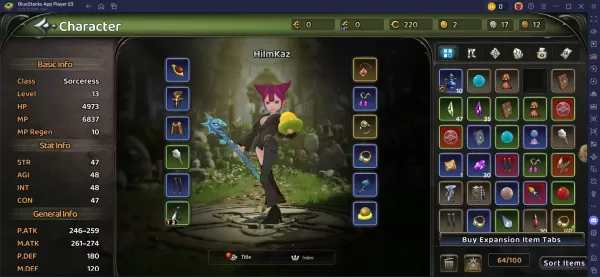Jeff Strain, co-founder of ArenaNet and co-creator of State of Decay, along with his wife Annie Strain, have filed a $900 million lawsuit against NetEase, the creator of Marvel Rivals. They allege that NetEase spread rumors among investors accusing the Strains of fraud with their recent venture, Prytania Media Group, leading to the devaluation and eventual closure of their studio.
The lawsuit, initially filed in January in the civil district court for the parish of Orleans in Louisiana and later moved to federal court, accuses NetEase of destroying the careers of two gaming industry veterans and their company. The Strains claim that NetEase's actions were an attempt to avoid compliance with U.S. laws.
According to the complaint, NetEase initially invested in Prytania's subsidiary, Crop Circle Games, acquiring a 25% share and placing Han Chenglin on the board alongside Jeff and Annie Strain. The relationship was initially positive, but tensions arose when NetEase expressed concerns about compliance with U.S. foreign investment laws, suggesting that the investment be kept "low profile" to avoid scrutiny from The Committee on Foreign Investment in the United States (CFIUS). NetEase allegedly asked the Strains to open branches in Canada or Ireland to facilitate their investment.
The complaint also delves into NetEase's alleged ties to the Chinese Communist Party, suggesting that the company wanted to keep these connections confidential. It references Tencent's designation as a "Chinese military company" by the U.S. government and reports of NetEase CEO Ding Lei using the threat of CCP retaliation against Activision Blizzard in 2023.
The Strains claim that Ding Lei was in the process of immigrating to the U.S. and was concerned that publicizing NetEase's investments could jeopardize his move into a $29 million Bel-Air mansion previously owned by Elon Musk.
As the Strains continued to question NetEase about regulatory compliance, their relationship deteriorated. In early February 2024, Crop Circle Games laid off and furloughed staff amidst internal confusion and anger. On February 22, Jeff Strain received a text from a managing director of a venture firm invested in Prytania, accusing Crop Circle Games of fraud and misuse of funds. The Strains traced these rumors back to NetEase, with Han Chenglin admitting during a March board meeting that he had expressed surprise at the company's rapid depletion of funds.
Following these incidents, other investors began withdrawing funding from Prytania, and the company was unable to secure new investments. Prytania and its subsidiaries, once valued at $344 million, became nearly worthless, leading to the closure of Crop Circle Games at the end of March.
In April, Annie Strain published a letter on the company website attributing the company's struggles to the industry's economic downturn and difficulties in securing funding. She also mentioned an alleged article by Kotaku reporter Ethan Gach that she claimed would have disclosed her personal health struggles without her consent. The letter was later removed, and Kotaku did not publish the article. A week later, Prytania subsidiary Possibility Space closed, with Jeff Strain citing leaks to the press as the reason, though no mention was made of NetEase or fraud allegations at the time.
The Strains are suing NetEase for defamation, unfair trade practices, tortious interference with business relations, and negligence, seeking damages exceeding $900 million, triple their company's previous valuation.
In response, NetEase stated to Polygon:
The allegations by Prytania Media and its founders Annie and Jeff Strain are wholly without merit, and we emphatically deny and will vigorously defend ourselves against them. Our record as a global gaming company speaks for itself, and we remain committed to conducting business with integrity. We are confident that the legal process will vindicate our position and shed light on the real reasons behind the demise of the Strains’ studios.









